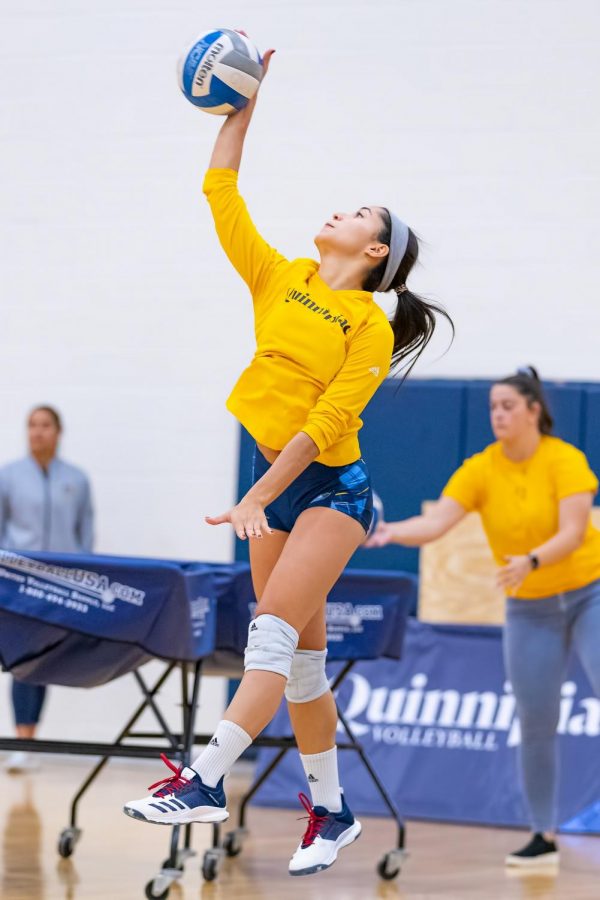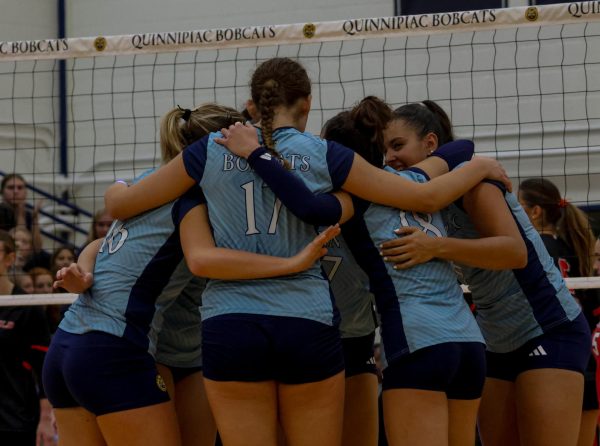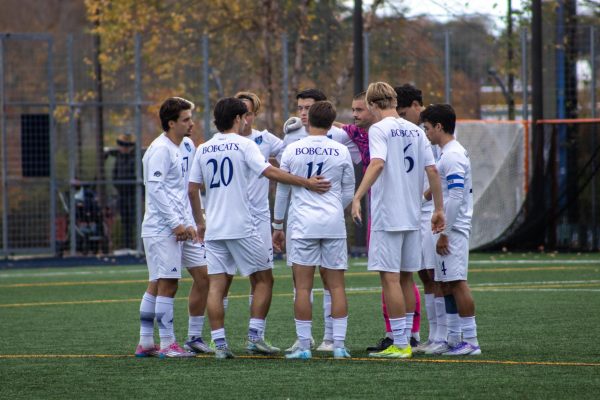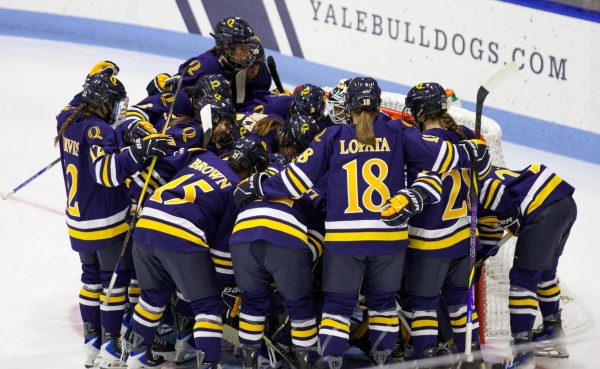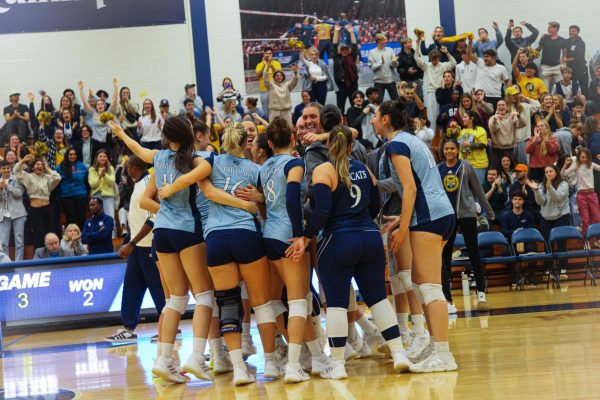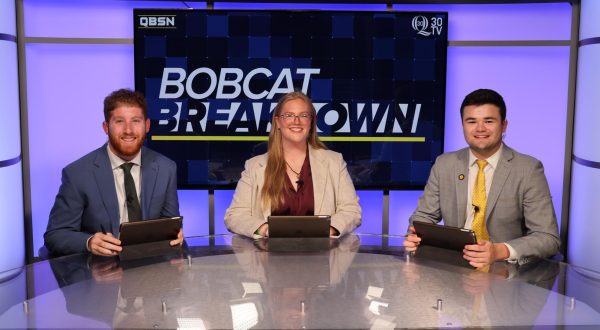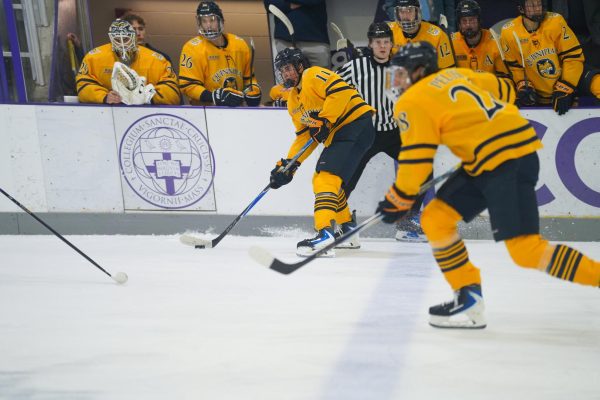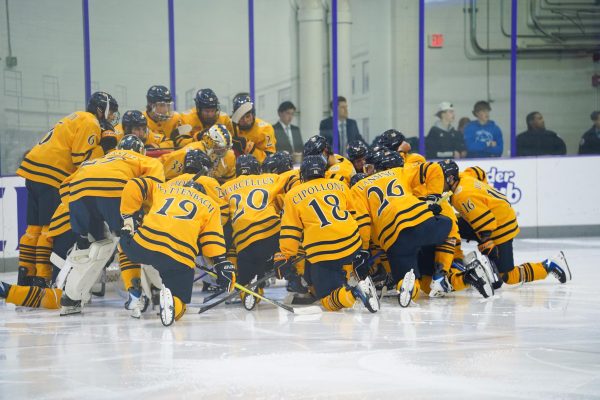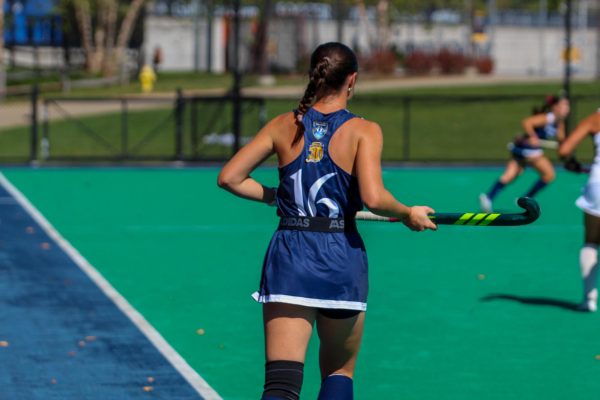Long Distance Relationship
November 1, 2019
In just ten minutes, the bond between Greek volleyball players Georgia Tselepi and Olga Zampati becomes unmistakable.
You can sense them speaking in their own language, not Greek, not English, but an unspoken one, made possible only from years of playing volleyball together around the world. Now at Quinnipiac, almost 5000 miles away from home, their friendship remains unchanged.
“We played on the national team, high school, and at club practices,” Tselepi said, “but honestly it does feel the same, it’s just in America.”
“I think it’s great,” Zampati said through a laugh. “[In practice] when we are on opposite sides of the net, we’re like ‘ok, I got you now.’ We know each other really well so we help each other out.”
The journey from Athens, Greece to Hamden, Connecticut isn’t easy, especially when you decide not to take the direct route. They attended high school together in Athens, Greece at the Moraitis School, known for its athletic success at the national and European levels.
The school’s volleyball team was no exception, as it placed their many of graduates in NCAA Division I universities around the country. Georgia and Olga showed their skills early, earning a number of individual honors and team championships throughout their high school and club team careers.
Eventually, they earned spots on the Greek national team, putting them on the radar of major NCAA Division I teams. However, their collegiate career didn’t start at Quinnipiac. Georgia started her career at the University of Cincinnati, playing in 16 matches, while Olga started hers at the University of Oklahoma, playing in six matches. Playing at big schools in big conferences came with a lot of opportunity but playing far from home had its challenges.
“I think it’s hard in the beginning because of the time difference,” Zampati said. “It’s like a seven-hour time difference so it’s hard in the beginning to find ways to communicate with your family back home.”
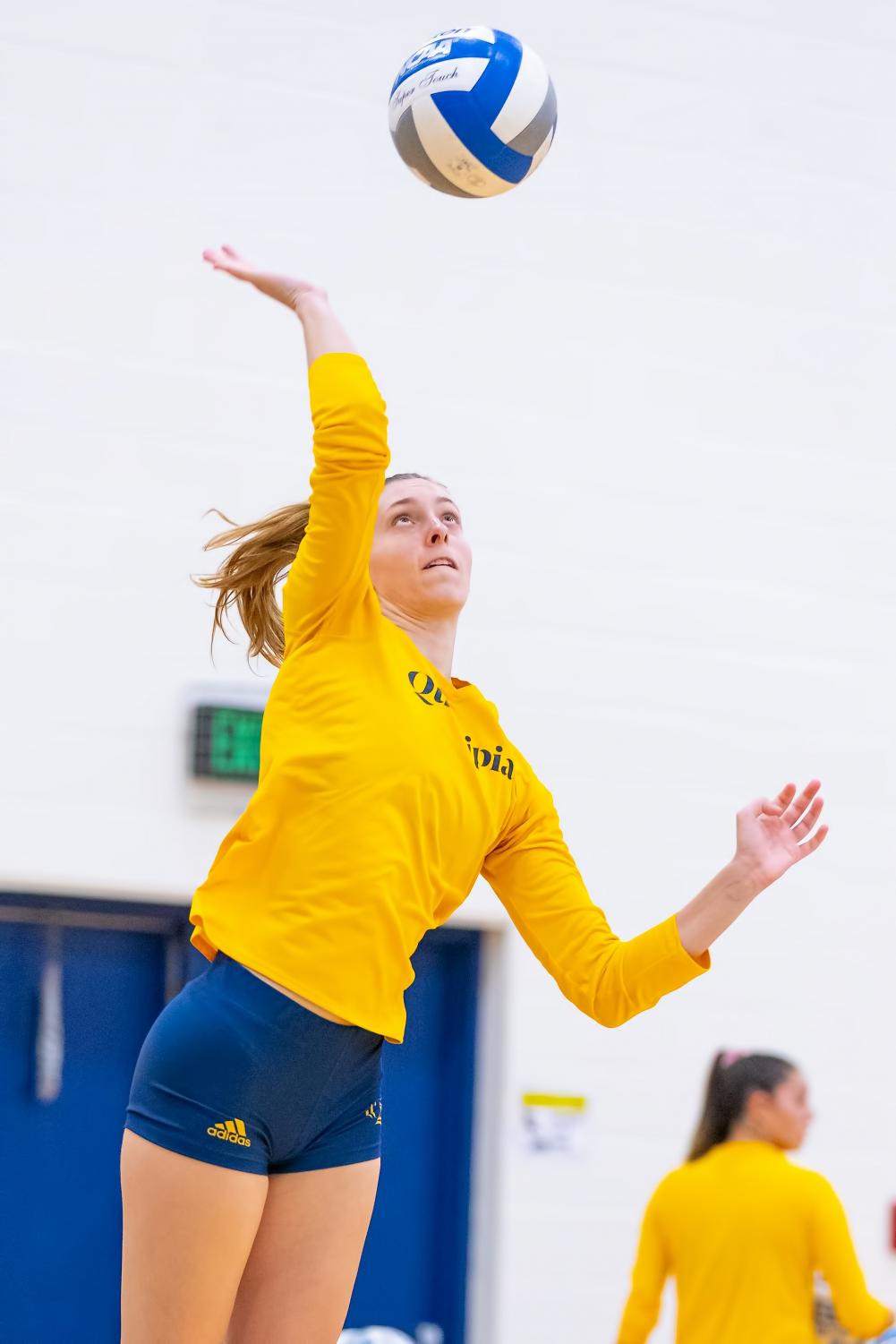
“Basically,” Tselepi said, “we have to talk here around three, because then it’s like night [in Greece], so it’s not easy to communicate back home. There was another Greek girl in Cincinnati, so it was a lot easier. I had a friend who I could actually talk to and she could help me. But [Olga] didn’t have anyone that we actually know.”
“In the beginning you feel alone because of the cultural differences,” Zampati said. “You have to decide to be open to new people and new things and just go for it.”
By the end of the season, it became clear a change was needed. They kept in touch as they looked at schools during the transfer process. Eventually, Olga decided to reunite with Quinnipiac Head Coach Kyle Robinson, the man who originally recruited her to Oklahoma while he worked there as an assistant coach.
“Coach [Robinson] recruited me at Oklahoma so I knew we were going to do a great job here,” Zampati said.” “Also, it’s a small school so people are more friendly and open to you so when I came to visit, I really liked it.”
“Like anyone that I recruit, you create this bond with them,” Robinson said. “I brought her there to have a good life and a good time and if she’s not happy, then I said, ‘well come here, we can give you a good life and a good time here.’ I was always looking forward to coaching her, and she’s great in the gym for us. I’m sure she was great in the gym out there.”
It didn’t take much convincing for Georgia to join her friend in Hamden. After her freshman year, it became clear what she was looking for in a school. Talks with Olga led her to believe Quinnipiac offered everything she wanted.
“I was transferring so I was looking for schools too,” said Tselepi. “And then Olga, who I’ve known for 5 years, now told me about the school… and then I talked to coach and they said everything I wanted to hear about the school.”
Recruiting two Greek athletes wasn’t a random occurrence for Robinson. He has a connection to Greece after playing with three separate Greek clubs during his professional career. Olga’s and Georgia’s success with Quinnipiac is important to him because of how important his time was in their country.
“With the Greeks,” Robinson said, “I have a special bond because I spent so much time there. I loved my time in all of Europe, but Greece was very special to me.”

Robinson’s experience playing overseas and coaching other international players gives him a unique insight on what overseas players can bring to a mostly American team. He’s seen the appreciation international players have for the game, and how far they must come.
“They come to the states and play for a team where they get three or four pairs of shoes each year,” Robinson said. “A lot of these girls haven’t seen three pairs of playing shoes for maybe their entire life. It’s just a different mentality and a different work ethic, and I think it’s nice to have the two balance out.”
“The international girls set a nice standard for accountability in our gym, and the domestic girls tend to show them the best of us,” Robinson said. “It all kind of works harmoniously.”
Olga and Georgia are no exception to this standard. They’re aware of this, and they know they must share their perspectives with their teammates if they all want to become better.
“I think we bring more experience,” Tselepi said. “Most of the girls played with teammates their age and my teammates were like 40 years old, so we have a little bit more experience, so we see the court in a different way. Also, we were in bigger schools before, so we know what it’s like to compete at a really high level and we try to bring that here to the girls.”
Their second attempt at attending an American college got off to a heart-warming start. Upon arriving at Quinnipiac, they were treated to a warm welcome by the members of the volleyball team, who immediately embraced their new Greek teammates.
“They’re awesome!” Tselepi said excitedly. “The first day they even had a poster that said ‘welcome Greek girls’ when we moved in. I don’t think they could’ve been more supportive.”
“They’re great,” Zampati said. “They’re learning new words in Greek, they have their own notes, it’s really funny.”
When asked what’s different this year, the two friends sound like they’ve found a second home.
“Here it’s more about the community and the school and I like that,” Zampati replied.
Tselepi’s response is simple. “I feel like it’s more like family.”
An impressive find, 5000 miles away from home.



